Financial problems are one of the commonly experienced troubles of any individual. When we are in economic despair, we cannot help feeling envious of other people who do not experience such things. We long for a time wherein we are debt-free and getting a fresh start.
Is it possible for creditors to stop going after you? Is there a way to be free of financial responsibilities and obligations?
Filing for bankruptcy is one of the debt relief options available for people with overwhelming debt. Getting a bankruptcy discharge might mean severely negative credit scores but is it worth the effort? Can bankruptcy be the way to have a new life free of debt?
While a bankruptcy discharge can lead to your financial freedom, the process is not easy. You will need a competent and experienced Mississippi bankruptcy attorney who will be your legal representative in courts to negotiate and handle your case. Filing for bankruptcy is a hurdle that you need to win. Your success is highly dependent on the knowledge of Mississippi bankruptcy laws.
What is Bankruptcy?
According to the United States Courts, bankruptcy is “a legal procedure for dealing with debt problems of individuals and businesses; specifically, a case filed under one of the chapters of title 11 of the United States Code (the Bankruptcy Code).”
Some also refer to the US Bankruptcy Code as the federal bankruptcy law.
Mississippi bankruptcy law firms such as Rollins Law Firm provide free consultations to individuals considering filing for bankruptcy to ease their financial burdens. As with all debt relief solutions, undergoing the bankruptcy process can also have severe repercussions. If and when you get a bankruptcy discharge, it also means decimated credit scores that you may retain for at most a decade. Rollins Law Firm can provide an honest evaluation of your unique situation. There might be other debt relief solutions that are feasible and available for you.
However, should filing for bankruptcy be your best action moving forward, here are some things you need to know before filing for one?
The Types of Bankruptcies in Mississippi
With a bankruptcy discharge, you get to rebuild your credit score over time and move towards financial freedom with discipline and will.
Bankruptcies are filed in federal courts instead of state courts. How the courts handle bankruptcy cases are provided for under the US Bankruptcy Code. Each type of bankruptcy is named after the chapter where it is discussed in the US Bankruptcy Code. Examples of bankruptcies are as follows:
- For Individuals – Chapter 7 (for liquidation) and Chapter 13 bankruptcy (for restructuring of debts and consequently a debt repayment plan)
- For Businesses – Chapter 7 (for liquidation) and Chapter 11 bankruptcy (for reorganization)
- For governments such as cities, villages, and school districts – Chapter 9 bankruptcy (for reorganization)
There are more types of bankruptcies as stipulated by law, and debtors can only apply for one type. The best course of action is discussing with your Mississippi legal representation to know the option that can provide the best outcome about your unique circumstances.
Types of Bankruptcies for Individuals and Couples
Chapter 7 and Chapter 13 bankruptcy are the two types of bankruptcies that may be availed by individuals or couples who wish to be free of financial turmoil.
Suppose you have little to no assets and no regular and consistent income. In that case, you may file for Chapter 7 bankruptcy or what is also called straight bankruptcy. In this type of bankruptcy, non-exempt assets are sold or liquidated by the bankruptcy trustee to pay off unsecured debts.
On the other hand, chapter 13 Bankruptcy or wage earner’s bankruptcy is for those who may have regular and consistent income who earn more than those who are qualified for a Chapter 7 bankruptcy. In this type of bankruptcy, debtors get to keep their properties provided they craft and adhere to a repayment plan that covers three to five years.
To qualify for the wage earner’s bankruptcy, the debtor must have less than $250,000 in unsecured debt, such as credit card and medical bills, and less than $750,000 in secured debts such as mortgages and car loans. Individuals with more debts than these should file for a Chapter 7 bankruptcy or, in some cases, a Chapter 11 bankruptcy.
Do I Need To Give Up All That I Own in a Mississippi Chapter 7 Bankruptcy?
Wherever you are in the United States, the laws provide for exemptions when filing for bankruptcy. Mississippi laws protect some of your property for you to regain footing and move on after a bankruptcy discharge.
Even in a Chapter 7 bankruptcy, not all of your assets are liquidated to pay off your creditors. These protected assets are called exempt assets, and you get to keep them after the bankruptcy discharge. Liquidated or sold-off assets are called non-exempt assets, and the proceeds are used to pay off your debt.
Couples who file for joint bankruptcy can enjoy double exemptions value for all the Mississippi exemptions except for the homestead exemption. A COVID-19 recovery rebate exemption is also available in Mississippi. Talk to your legal representative about this to get the most of what you can.
On the other hand, you get to keep most if not all of your property in a Chapter 13 bankruptcy as this type of bankruptcy involves payment of your debts using your income through a repayment plan for three to five years. However, the value of your non-exempt assets that you get to keep should be included in the repayment plan.
What are the Exemptions Under Mississippi Bankruptcy Laws?
Mississippi residents for more than 180 days can file for bankruptcy in the state of Mississippi. However, those who have lived in Mississippi for at least two years before filing bankruptcy can avail of the Mississippi exemptions. Otherwise, state exemptions of their previous residence will apply.
The Mississippi Code Annotated enumerates and discusses all exemptions that debtors may avail. In summary, the commonly availed exemptions are the following:
- Homestead Exemption – For a residence of fewer than 160 acres, up to $75,000 of equity in your home is protected under Mississippi laws. If you and your spouse resided in separate residences, the value of equity you can avail of would be doubled. For a mobile home, up to $30,000 of equity is protected. However, for the protection of mobile residences, you cannot use both the homestead exemption and personal property exemption.
- Insurance Benefits – Protection of insurance benefits is unlimited. However, if you procured the insurance less than 12 months before filing, the exemption is up to $50,000.
- Personal property – For properties other than real estate, up to $10,000 of equity are protected. In Mississippi, personal property exemption includes motor vehicles, furniture, clothing, items you will need to continue your profession, health aids, etc.
- Other exempted assets in Mississippi include disability benefits, health savings account, employee and retirement benefits, public benefits, etc.
- Wildcard exemption – If you are over 70 years old, you also get an additional $50,000 equity in any property.
Mississippi exemptions could change over time. With the onset of the COVID-19 pandemic, additional exemptions and coverage are available. A Mississippi bankruptcy lawyer can provide you with additional information.
Filing for Bankruptcy in Mississippi
In a Chapter 7 bankruptcy, debtors file for bankruptcy protection and submit a Statement of Financial Affairs. This details their assets and liabilities, a list of all creditors, and the value of debt owed with the Mississippi Bankruptcy Court. Creditors are then notified that a debtor has filed for a bankruptcy petition. All creditors are not hindered from pursuing the collection of debt owed to them.
However, filing for bankruptcies does not discharge one for secured debts such as a home mortgage or a car loan. In this case, the debtor should continue to pay these debts to keep the asset. Should the debtor also fail to pay secured debts, the creditor may file for a petition in court for asset repossession.
A bankruptcy trustee is appointed to sell all non-exempt assets and pay the creditors. Should there be no non-exempt assets owned by the debtor, or if the proceeds of the liquidation are less than the required amount, the court may issue a bankruptcy discharge that lifts the debtor’s responsibility to pay unsecured debts. However, this will reflect on the debtor’s credit score for ten years and may prevent the debtor from applying for any other loans during this period.
In a Chapter 13 bankruptcy, a debtor files a proposed payment scheme using all their income after taxes and basic expenses to pay off all creditors. Afterwhich, the creditors will review and recommend their approval to the bankruptcy court. The payment plan becomes effective upon court approval.
Getting Competent Legal Representation
The complicated legal matters involving bankruptcies surely means additional headache. You need a team of experienced Mississippi bankruptcy lawyers to fight off hostile creditors who will demand payment of debts owed to them. A successful bankruptcy discharge relies on experienced bankruptcy attorneys.
If you need help getting out of debt, reach out to one of our Jackson bankruptcy lawyers. We’re here to help you! Call our Ridgeland lawyers today!

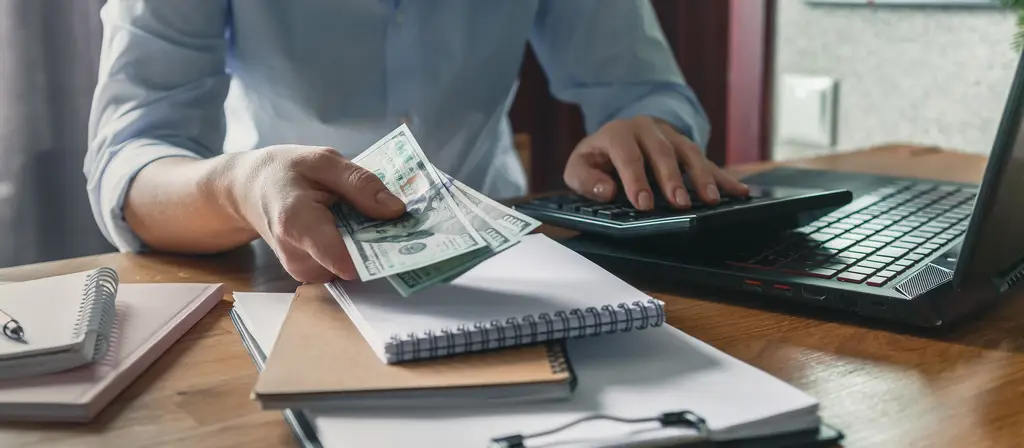
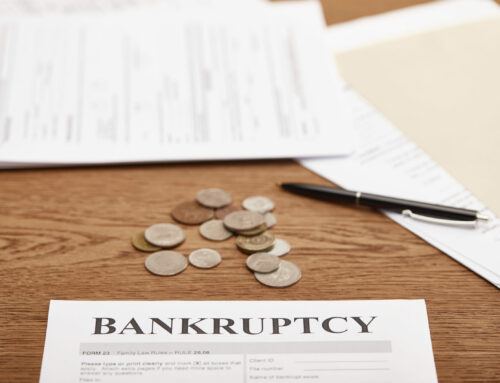
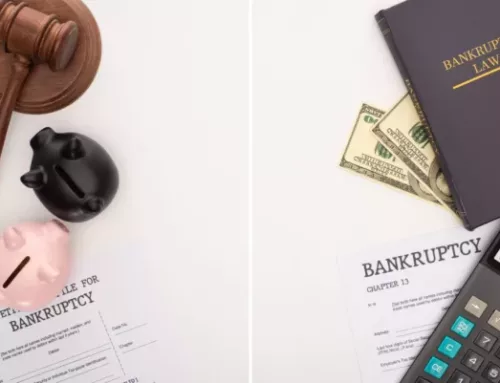
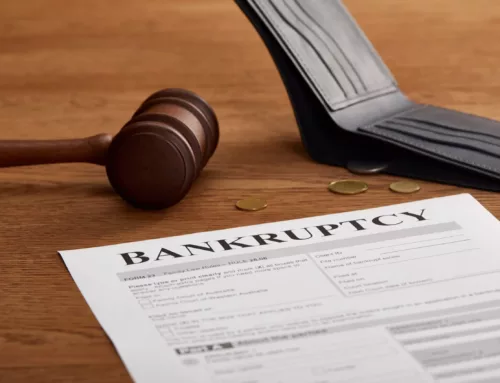
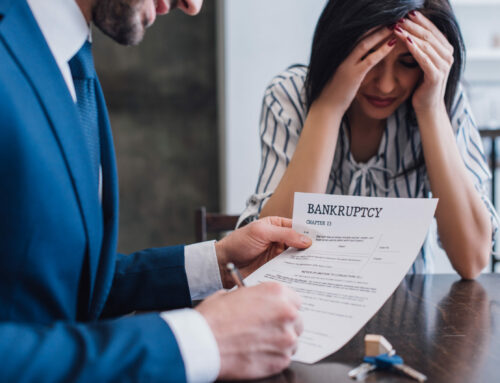

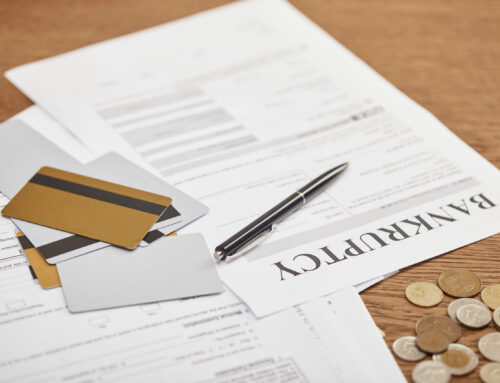

Connect with Us